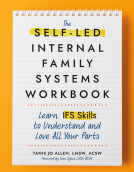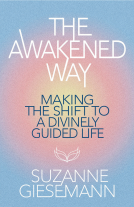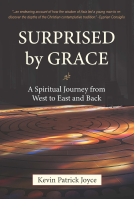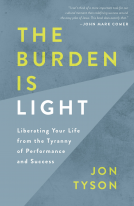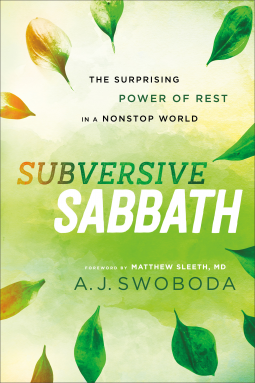
Subversive Sabbath
The Surprising Power of Rest in a Nonstop World
by A. J. Swoboda
This title was previously available on NetGalley and is now archived.
Send NetGalley books directly to your Kindle or Kindle app
1
To read on a Kindle or Kindle app, please add kindle@netgalley.com as an approved email address to receive files in your Amazon account. Click here for step-by-step instructions.
2
Also find your Kindle email address within your Amazon account, and enter it here.
Pub Date Feb 20 2018 | Archive Date Oct 26 2018
Baker Academic & Brazos Press | Brazos Press
Talking about this book? Use #SubversiveSabbath #NetGalley. More hashtag tips!
Description
This book pioneers a creative path to an alternative way of existing. Combining creative storytelling, pastoral sensitivity, practical insight, and relevant academic research, Subversive Sabbath offers a unique invitation to personal Sabbath-keeping that leads to fuller and more joyful lives. A. J. Swoboda demonstrates that Sabbath is both a spiritual discipline and a form of social justice, connects Sabbath-keeping to local communities, and explains how God may actually do more when we do less. He shows that the biblical practice of Sabbath-keeping is God's plan for the restoration and healing of all creation. The book includes a foreword by Matthew Sleeth.
Advance Praise
"Do you ever just want to pull the plug on your schedule? A. J. Swoboda’s Subversive Sabbath shows you why you should and how you can; it will fundamentally change your life. It is a total reconstruction of America’s frenzied, frenetic lifestyle, offering the ultimate regenerative alternative."—Joel Salatin, Polyface Farm; editor of The Stockman Grass Farmer
"Subversive Sabbath is incredibly well written, accessible, and deeply encouraging. A. J. Swoboda avoids oversimplification and presents a deep, rich, and energetic argument on what it means to be fully human through an obedient pursuit of rest and well-being. This book gives a theology of Sabbath-keeping that was a much-needed encouragement for me. I’m sure it will be for you as well."—Ken Wytsma, founder, The Justice Conference; pastor, Antioch Church, Bend, Oregon; author ofThe Myth of Equality
"If I were permitted to recommend only one book on Sabbath-keeping, A. J. Swoboda’s Subversive Sabbath would be it. This one volume acquaints the reader with a vast literature on Sabbath from both the Jewish and Christian traditions. Through practical reflection questions at the end of each chapter, it provokes changes in doing as well as thinking. It explores the implications of Sabbath not only for one’s personal life but for relationships, for worship, for public life, and for the whole of creation. Best of all, it highlights the lavish gift and the countercultural adventure of Sabbath. No one can read this book and ever again associate Sabbath-keeping with ‘blue laws’ or legalism or boredom. Subversive Sabbath dares one to do life as God intended from the beginning."—Shirley A. Mullen, president, Houghton College
"Our smartwatch-driven age can measure every heartbeat, every step, even the quality of our sleep, but it cannot measure the health of our souls. Our limitless freedom has paradoxically imprisoned us in an achievement culture of constant measurement. Escape from the exhaustion of endless opportunity, embrace the singular God behind the singular Sabbath day of rest. Stop, breathe, read this profoundly helpful book, and be remade."—Mark Sayers, senior pastor, Red Church, Melbourne, Australia; author of Disappearing Church and Strange Days
"Few things are as subversive to the hurry addiction of the modern world than the practice of Sabbath. And few things are as life-or-death important. A. J. has written his best book yet. His keen mind, quick wit, and deep soulfulness come through beautifully, page by captivating page. But more than anything, this is a book that is lived. My new go-to book on the Sabbath."—John Mark Comer, pastor of teaching and vision, Bridgetown Church; author of God Has a Name
Available Editions
| EDITION | Other Format |
| ISBN | 9781587434051 |
| PRICE | $21.99 (USD) |
| PAGES | 256 |
Featured Reviews
 Alex P, Reviewer
Alex P, Reviewer
This is one weird book.
It's weird because it seems to come from some other planet, some other way of life, some method that none of us are really capable of. It's so foreign to our experience that it will probably get tossed aside by most, or even worse: called "a great read" but never really seep down in the bones.
The title is not overly dramatic. Sabbath is a highly subversive practice, so difficult to do that barely any of us in the Christian US manage to practice it well, if at all. To be a believer truly makes you a subversive. To be a subversive gets you closer to the world where God intended us to live.
The text goes to great pains to point out practical, biological, and spiritual reasons to follow a proper Sabbath. It extends all the way out to the world, it even subverts our ravenous need to tame and conquer. Very few of us are comfortable allowing that level of disruption.
I am not left feeling good about my personal practice after reading this book. I am left somehow sad, wishing I could be closer to the Sabbath ideal that Swoboda describes. I want to make plans. I want to plant gardens and sit more. I want to be present for moments instead of sprinting through them. Life could be so much more than it is if we could allow that to happen.
May I challenge you not to look away? May I stand with you in your discomfort as we hope together for something better? I hope so. I hope I have not been left unchanged by this vision of greater things.
 Conrade Y, Reviewer
Conrade Y, Reviewer
We are a restless people living in a restless world surrounding by restless activities. This is an understatement. In fact, a widely accepted answer to the question of "How are you today?" is the word "Busy." Many would nod in agreement as if being constantly busy is a good problem to have. On the flip side, not being busy could even be viewed as taboo. Christians have also been caught up in this whirlwind of constant activity. Forgetting the commandment of the Sabbath, they are non-stop at work. As a result, many have trouble learning how to rest, substituting leisure and entertainment for true rest. The truth is, we are restless creatures needing to find true rest in God alone. Author A.J. Swoboda is spot on when it comes to identifying the true human need amid all the frantic happenings. The solution is simple: For one 24-hour cycle each week, stop what we ordinarily do over the week, and rest in God alone. It brings benefits not only to self but also to our neighbours and creation at large. How? This is what this book is about.
The author begins the book with a personal story of how a lottery windfall that was initially received as a godsend ended up breaking the family apart. It was a tragic case of how a family was unable to steward such a gift. This is not an uncommon theme among lottery winners. Some even wished they had never won anything in the first place. This is one example of how mankind fail to steward the gift of Sabbath; choosing to abuse the time of rest in exchange for more commerce; more activities; more work; more busyness. For Swoboda, he admits that "even thinking and writing about Sabbath has the power to heal the soul." If that is so, what about those who actually practices it? There is something very precious about such an ordinary day as a rest day. Like hidden treasure that lies in our ordinary backyard, the first thing we ought to take note is the way it helps us arrest the tyranny of a 24x7 time rush. Systematically, the author leads the reader through the basics of Sabbath, beginning with what it means for us. He addresses the biblical description of the Jewish practice of Sabbath, which urges us to remember the history, the significance of tradition, that we will not forget the great mercies of God. We are reminded of the example of God leading the way to teach us how to rest. We can even have sabbatical reflections over work. One may ask: Isn't that an oxymoron? He gives us a clue about what he means by pondering about how we will have jobs in the new Jerusalem. Work would essentially be perfect worship, and will not be seen in the same way as earthly work as we know now. How does that happen? In a nutshell, a proper understanding and practice of the Sabbath will give us a healthy framework to view work. We learn that work is not the ultimate but work itself in its true essence points us toward the Sovereign Lord. Plus, there are benefits in terms of health as well. Apart from the obvious benefits from overwork, regular rest promotes healthy lifestyles. Put it simply, the Sabbath shows us that it is ok to say NO to things that threaten to derail our rest. We learn that life is not simply about production efficiency or process expediency. It is much more than simply making a living. Once we learn how to deal with the Sabbath ourselves, we are ready to help others.
The second part of the book deals with the are of relationships; the larger economy and technology; and to be more conscientious of the marginalized in our society. It is easy for non-stop work to steal away time for our loved ones. Even church work can be quite exhausting. Heard of burn out? The issue is also compounded when the regular day of rest in many societies is Sunday, and Sunday might even be the busiest day of the week for Christians! In relationships, Swoboda addresses quite a wide variety of relationships. From sociology at large to working with children, there is always something that the Sabbath could be beneficial to, reminding us once again that the Sabbath was made for man, and not man for the Sabbath. Not only does the Sabbath helps us build boundaries between non-stop action and rest, it establishes boundaries in relationships as well. The essence of Sabbath is this: Liberation. "If being alone with people is life giving, be with people. If being alone is life giving, be alone," so says the author.
Sabbath is particularly necessary for those of us addicted to a high-tech world and frantic lifestyles. We need a way to unwind, to keep the day holy, and to be intentional about Sabbath keeping. It is not simply the elimination of the "blue laws" that threaten Sabbath keeping. It is the addiction to a 24/7 mindset that never rests. Quoting Judith Shulevitz, it is a stark contrast that "Americans, once the most Sabbatarian people in the earth, are now to most ambivalent on the subject." He tells several stories of people intentionally bucking the commercial trend, to make as much profit as possible all the time. For one day a year, a month, or a week, these businesses stand out as a witness to a higher power. This can be applied to the world of social media as well, where all connections and no rest make one an addicted and drained person. Indeed, we will fail to seriously question: "How much information is enough?" The Sabbath reminds us that getting information is not the end of it all, it is the wisdom and discernment to know how much to get and not to get; when to retrieve and not to retrieve; and what to use and what not to use. These require a higher level of understanding and discernment. There is more. In an impersonal world, we tend to be too self-centered and self-serving. With the Sabbath, we are able to notice what is out of the ordinary and marginalized. For Christians, it is an important reminder that we are called to be a blessing to the world. In our world of busyness, we need moments like the Sabbath to remind us of that again.
On and on, Swoboda does not let up in showing us how expansive the potential of Sabbath keeping is. Sabbath keepers will do a better job in caring for creation as they had of themselves. Sabbath is that "string" moment in time that holds everything together. He tells of one example of a period of time when Chairman Mao of Communist China asked the rural population to get rid of swallows through noises, seeing them as "pests" that destroy their crops. In reality, the swallows actually help the farmers by eating up insects that harm their crops. It is an example of the delicate balance of creation and human beings ought to leave the natural order alone as much as possible. Imagine if creation never have a single rest day ever. That would be horrible. From land to critters; from the oceans to the fish; and to all of creation; we learn that Sabbath is far-reaching influence. Thus, failure to keep the Sabbath is tantamount to ruining the original pattern of life.
Sabbath is also not about creation. It is about honouring the Creator. The final three chapters of the book deals with this through witnessing of God; the worship of God; and the discipling of one another to pass down the practice of Sabbath.
My Thoughts
Books on the Sabbath have always fascinated me because it is a reminder to me about my own busyness and restlessness. We are wired for work but too restless to leave work alone on a regular basis. As Swoboda has shown us, it is tragic when we fail to let the Sabbath work for us. As the author moves from personal benefits to the wider community; and to the larger created world, he has shown us how pervasive the need for Sabbath in our world. This may be especially so for cultures that are too busy to even think about taking break. Busyness is not a sign of pride. It is a sign of aimlessness. Like a hamster on a ferris wheel, we could very well be spinning all kinds of activities but are still not going anywhere. Let me give three thoughts about this book.
First, the Sabbath is a necessary intervention for many of us stuck on the spiral of non-stop work and activities. That is why an additional book is more than necessary in an ocean of frenzy and anxiety. The current cultural caution about fake news and loss of confidence in what we read is a case in point. Rather than bemoaning on the lack of credible news or reliable information, perhaps, taking a break from all the Internet buzz could be a good thing. One thing I realize is that with the IPad and tablet revolution, people are not only consuming more, they are producing less. With that, we easily jettison our creative gifts and talents through the lack of engagement with our natural talents. Even for preachers, being able to take a break for even one weekend without preaching brings lots of dividends in terms of sufficient rest for the long haul. We all need important interventions from time to time.
Second, there is an intention that moves outward from personal growth to the world at large and eventually to the spiritual realms of worship. Everything must start somewhere. For the taking of the Sabbath, without a proper appreciation of what it is and what it means in the first place, we will not be able to translate the benefits to the rest. That is why the first part of the book about the personal practices is a must read.
Third, we need Sabbath interveners throughout all of society. Whether it is in the Church or in the public sphere; schools or societies at large; the Sabbath is not just for Christians. It is for all of creation. When God rested on the seventh day, He is not just showing believers the way. He is pointing out the necessity for all of creation. This book proves to be a wonderful practical guide to make interveners out of us all. So, let's do our homework of Sabbath keeping first.
A.J. Swoboda is Professor at lead mentor of the Doctor of Ministry program at Fuller Seminary. He is also director of Blessed Earth Northwest ministry, which focuses on creation care and Sabbath. He blogs at www.ajswoboda.com and tweets at @mrajswoboda.
Rating: 4.25 stars of 5.
conrade
This book has been provided courtesy of Brazos Press and NetGalley without requiring a positive review. All opinions offered above are mine unless otherwise stated or implied.
 Bassocantor ., Reviewer
Bassocantor ., Reviewer
I confess, I find most theological books to be duller than dirt. I am delighted to report, however, that SUBVERSIVE SABBATH is the opposite. In fact, I found SUBVERSIVE SABBATH to be a delightful book—fun to read, inspiring, and practical.
Pastor and Professor A.J. Swoboda explains that Christians mistakenly think of the Sabbath as some drab requirement we must keep—and certainly not a day of fun. The author argues, however, that that view is not at all what the Scriptures teach. The Bible teaches that the Sabbath is above all, a GIFT to us--something to savor and anticipate. It's to be a day of rebuilding our body, mind and soul; it's to be a day of rejuvenation.
Yet, we are so busy, we can 't handle such a concept; we can't accept this gift without kicking and screaming:
“The Sabbath is a gift we do not know how to receive. In a world of doing, going, and producing, we have no use for a gift that invites us to stop.”
There are practical consequences to not having a sabbath. We suffer in many ways, the most obvious being our health:
“The truth is, if we do not rest, we will not be well. We might be fine for a while. But over the course of time, our bodies, minds, and souls will pay a hefty price for ignoring gravity.”
pexels-photo-320007.jpeg
A difficult part of keeping a Sabbath is turning off all our devices. We just can’t stand the idea of not being productive. The Sabbath shows the way, and "dismantles the tyranny of multitasking.” The author shares his own Sabbath plan: To start, they turn off all their phones (except one for emergencies.) Their Sabbath is not somber--it is a fun, positive day, with zero thought about work. The idea is to not even THINK about work. So, if you have a desk job, your Sabbath may involve outdoor activities, such as hiking (yea!) The whole point is to “Reconnect To Our Creator.”
So all in all I found SUBVERSIVE SABBATH to be a WONDERFUL book, full of practical wisdom on how to plan your own Sabbath. I found the Professor's ideas to be solid as well as Biblical. I have a new perspective on the Sabbath after reading this book.
I thought this one passage nicely summed up this book:
“The Sabbath is an interval in which we can admire beauty around us, to take it in and enjoy it, appreciating the work God has done in the land."
I had a hard time with this book. From reading through other comments, I’m in the minority with this feeling, but that's okay. I'm genuinely glad others appreciated it, because I love the Sabbath, and I love reading books about the Sabbath. I was raised Seventh-day Adventist and so the Sabbath has always been a special day. I look forward to it each week as a respite from the world, a chance to slow down, and an opportunity to think deeply about my connection with God in ways I don’t often do during a hectic work week where I feel like I’m going 90 miles an hour.
This book though… I felt like it sucked all the joy out of the Sabbath and turned it into a litany of do’s and don’ts about the Sabbath and who’s doing Sabbath “right” while calling out religions that are doing it “wrong” according to the author, A.J. Swoboda. Swoboda, gets it “right” of course, while Jews and Seventh-day Adventists get pretty harshly slammed as doing it “wrong.” I felt this was unfair, especially considering that my own experience being raised Adventist was way different from how Swoboda describes Adventists in his book. His sources for information on how Adventists keep Sabbath seem outdated and anecdotal. Plus, slamming Adventists and Jews for having rules on the “right” way to keep Sabbath while insisting the ways he describes are actually “right” seems a little hypocritical.
The whole point of the Sabbath is connecting with God in whatever way works best for the individual, which Swoboda does emphasize…while also pushing his own unique way and criticizing the two main religions who already have Sabbath as a core tenant. I’m undoubtedly taking this particular issue personally because, well, it is personal. He incorrectly described a religion I was born into and then criticized it based on that incorrect information that he is pushing on an audience that may or may not know any better.
One of the ways Swoboda thinks Sabbath is done “right” is by choosing any day to set aside as the Sabbath. Okay. Despite being raised in a denomination that has “the seventh day is the Sabbath” as a main belief, I can actually get behind this. I wholeheartedly agree that due to work and family life, not everyone is able to set aside Saturday as a day of rest. I’ve had several jobs, including ones at Seventh-day Adventist institutions, where I had to work on Sabbath, so I get it. But, it seems to me that in a conversation about changing the day of Sabbath to one that better meets your needs, it would be enriching to also discuss how and why the God of the Bible chose the seventh day of the week as Sabbath, how and why Sabbath slowly shifted to Sunday (Justo L. González’s “A Brief History of Sunday” does a phenomenal job at this), and what implications (if any) that has for a Christian today. But Swoboda doesn’t go there at all. He leaves it simply as choosing the day that works best for you, while neglecting the Sabbath’s rich and fascinating history.
This omission of a key part of Sabbath was even more surprising because Swoboda’s book reads like a text book. It is a dense and exhaustive tome about a beautiful gift from God, so you’d think there’d be room somewhere for at least a chapter on the history of the Sabbath throughout the ages. In the introduction, Swoboda says his goal with this book is to make Sabbath accessible to everyone from pastors and professors to lay people, but this book is not that. I found it a difficult read because while Swoboda covers a lot of ground, he doesn’t unpack very much of it for the reader. And, as stated above, what is unpacked is sometimes inaccurate (the portrayal of Adventists, specifically), which led me to wonder what else was inaccurate that I just didn’t know enough about to realize.
Even if there wasn’t an opportunity to discuss the history of the Sabbath day, Swoboda didn’t need to condemn Adventists and Jews as “legalistic” for keeping the seventh day as the Sabbath. Of course that’s the day we keep. That’s the day God set apart as special in the Old Testament and the day Jesus rested in the New Testament. But we don’t condemn others for keeping the Sabbath on different days. My biggest issue with this whole book is that Swoboda criticizes Adventists (and Jews) with the same narrow-mindedness he condemns us for having. This was a disappointing discovery (especially in a book I was so looking forward to reading), and it’s an unnecessary approach to take. Swoboda dismisses an emphasis on a particular day for Sabbathing as legalistic, while completely missing the point of having a specific day. To be an Adventist (or a Jew) is to be welcomed into this world where Saturday is sacred, where resting is done as a whole community. It is not a “do this or else” approach, but rather a “come, let us worship together” mentality. This is a marked distinction and means all the difference between legalism in rules versus freedom in God’s gift of Sabbath.
At the end of the day, if this book brings even one person to an appreciation for God’s gift of the Sabbath, regardless of the day they choose, then I’m glad it was written and is out there in the world. That, after all, is what the Sabbath is all about: welcoming everyone into this sacred community to rest in God’s love and sacrifice. So, even if I don’t appreciate Swoboda’s method, I do appreciate his motives and his goal of guiding others to this sacred gift.
 Eva L, Educator
Eva L, Educator
There are some excellent reasons why God gave us the Sabbath, and this book is an excellent examination of the importance of observing it. Such a foreign concept in today's age, yet it seems like we need it more than ever! It goes far beyond legalism, and speaks to the very heart of ourselves, and our needs.
Readers who liked this book also liked:
Tanis Allen, LMSW, ACSW
Health, Mind & Body, Self-Help


